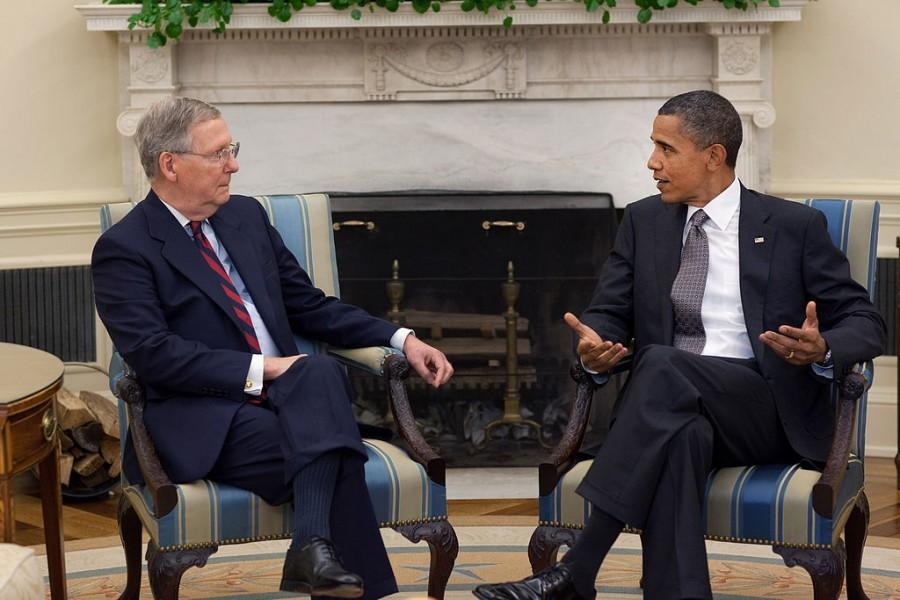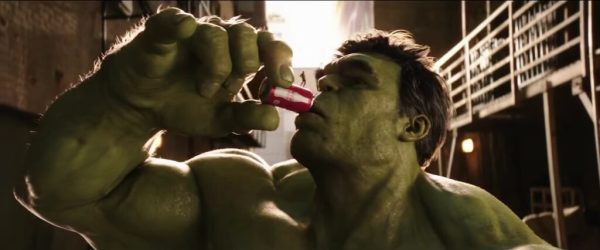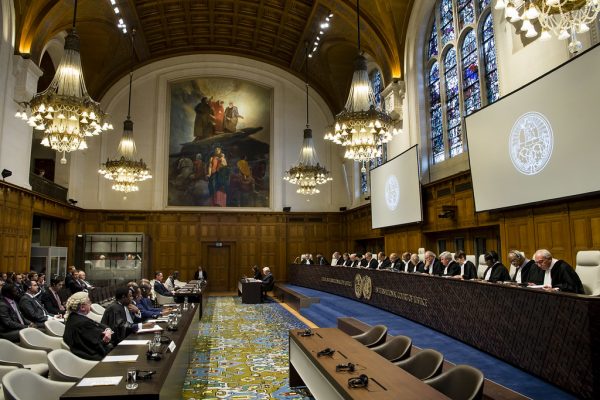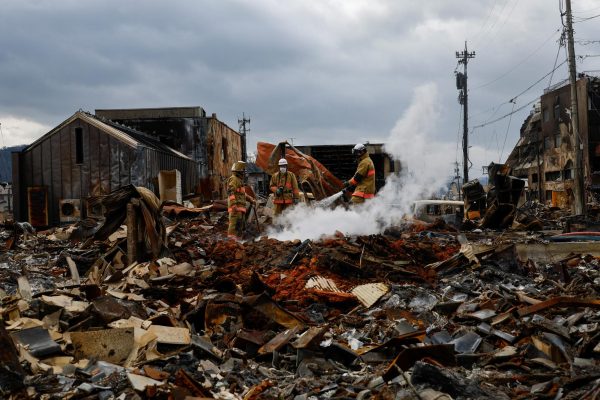The Brawl over Scalia’s Spot
In the words of President Barack Obama, the United States has just lost “one of the most consequential judges and thinkers to serve on the Supreme Court.” Justice Antonin Scalia, the longest serving member of the sitting court after his appointment by Ronald Reagan in 1986, was seventy-nine years old. Following his passing, controversy erupted in the Federal government over the task of appointing a new official during a momentous election year.
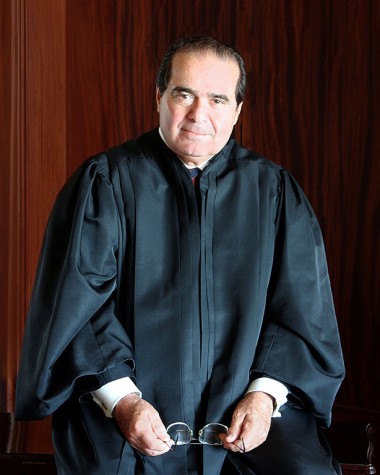
Justice Scalia was a political figure for history books in many ways. As the Los Angeles Times reports, Scalia was not only the first Italian-American appointed to the Supreme Court, but also a man known for his intelligent and often controversial statements about key cases. He was also a staunch adherent to the doctrine of constitutional “originalism”—the belief that the Constitution should be interpreted according to society’s views at the time of its creation. His death leaves the highest court in the land with only eight sitting members—evenly divided into four liberals and four conservatives—who are likely to deadlock on several controversial issues coming before the court in the next few months.
These topics include affirmative action (Fisher v. University of Texas at Austin), abortion restrictions (Whole Women’s Health v. Cole), Obama’s executive order regarding immigration (United States v. Texas), employer’s provision of contraception to workers under the Affordable Care Act (Zubik v. Burwell), voting rights in population counts (Evenwel v. Abbott), and public sector union dues (Friedrichs v. California Teachers Association), according to NBC News and the New York Times. If no consensus can be reached on an issue, the ruling of the lower ranked appeals court stands without setting national precedent. This would particularly affect the case of Obama’s immigration policies, which could be delayed until he is no longer in office. Scalia, as a champion of conservative views, would have served as a tie-breaking vote possibly foreshadowing Republican victories in several of these instances.
Both elected officials and candidates for government offices from across the political spectrum expressed their condolences at the news of Scalia’s passing, and many commented on his influential political legacy. For instance, statements released to CBS News by the remaining Supreme Court jurists relate that he was “admired and treasured by his colleagues” (Chief Justice John G. Roberts, Jr.), one who brought “wisdom, scholarship and technical brilliance…to the Court” (Justice Anthony Kennedy), and “a man of strong faith; a towering intellect; a legal giant; and a dear, dear friend” (Justice Clarence Thomas).
However, many other responses reflect the emergence of a conflict reminiscent of that sparked by President Lyndon Johnson’s 1968 nomination of Abe Fortas to the position of Chief Justice, when Senate Republicans and Southern Democrats filibustered in Congress to block such an appointment. In the hours after Scalia’s passing on February 13, 2016, President Obama in a commemorative speech promised “to fulfill [his] constitutional responsibility to nominate a successor, in due time.” This was despite Senate Majority Leader Mitch McConnell’s (R-KY.) comments earlier that day, in a statement recorded by the New Yorker, calling on the Senate to wait eleven months to appoint a new justice, after a new President-elect will have taken office. Senate Minority Leader Harry Reid (D-NV) called for a replacement as soon as possible, in support of President Obama.
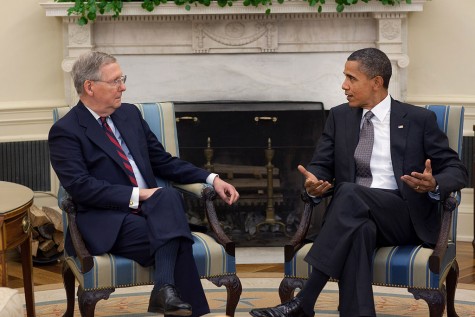
Democratic and Republican Presidential candidates have expressed mixed perspectives following the controversial comments. Hillary Clinton (former Secretary of State) expressed support for the incumbent executive in chief, asserting that delaying the satisfaction of the gaping vacancy left by Scalia would be to dishonor the Senate’s duties as laid out by the Constitution. Bernie Sanders (D-VT), on the other hand, chose to simply express sympathy for those close to the deceased, without commenting on the ongoing political spat. On the Republican side, Ted Cruz (R-TX) agreed with McConnell’s statement, and Donald Trump said the response to any nomination by the soon-to-termed-out Obama should be to “delay, delay, delay.”
It is remarkable, looking back at the events of Justice Scalia’s death date, how quickly calls for a pause in political strategizing—to consider his lasting legal legacy—shifted to yet another complex debate over the sparring powers of the individual branches of the Federal government. Two things are certain, however: the issue of selecting a new leader for the highest court in the land has added a new element to the Presidential election, and new lines may be drawn regarding the power of partisan politics. Scalia was a controversial politician in life, and the aftermath of his death seems to be no less dramatic.

